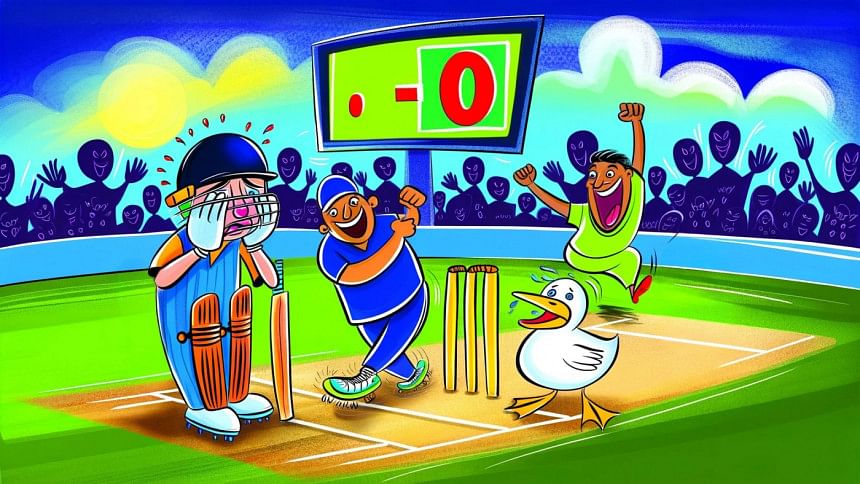“Duck” in cricket: The quirky origins of a zero run

When a batter is dismissed without scoring a single run, it is called a "duck egg" in cricket, later shortened to 'duck'. Now, where did the word 'come from in cricket? Simple — the name originated from the shape of the number "0", similar to a duck's egg!
If a batter is dismissed without scoring a run, but some time after the first ball, s/he is said to be dismissed for a duck.
What is the difference between a "duck" and a "golden duck", you may wonder. It's a "golden duck" when the batter is dismissed after the first ball is bowled to them in their innings.
There is also the "diamond duck" — when a batter is dismissed without facing a single legal ball.
In professional cricket, a duck is not common as the standard of batting is quite high. Bowlers often have to be at their best versions to outsmart the opposition batting team and get ducks.
In other sports, such as the American slang term "goose-egg" popular in baseball and the tennis term "love", obtained – according to one theory – from French l'œuf ("the egg").
The term "duck" was used long before Test cricket began. When referring to the Prince of Wales (the future King Edward VII) scoring zero on 17 July 1866, The Daily Times newspaper wrote that the Prince "retired to the royal pavilion on a 'duck's egg' ".
It cannot be known for sure whether there were any previous references to duck's egg to represent the score zero before this incident, the phrase struck and it became widely used in following Test matches
It is an unfortunate scenario that every batter tries his best to avoid. After all, the target is to score as many runs as possible in pivotal situations to help his side get the upper hand in the match. Getting out without scoring any run defeats that purpose and can be mortifying for the player.
To consider the bowler's perspective, however, there is hardly a greater cause of joy as he succeeds in getting rid of the opposition batter with ducks.
Bangladesh all-rounder, Soumya Sarkar has recently set down a record in the T20 Internationals as he becomes the batter to record the most ducks in T20Is (13 in total), alongside Ireland's Paul Stirling.

 For all latest news, follow The Daily Star's Google News channel.
For all latest news, follow The Daily Star's Google News channel. 



Comments